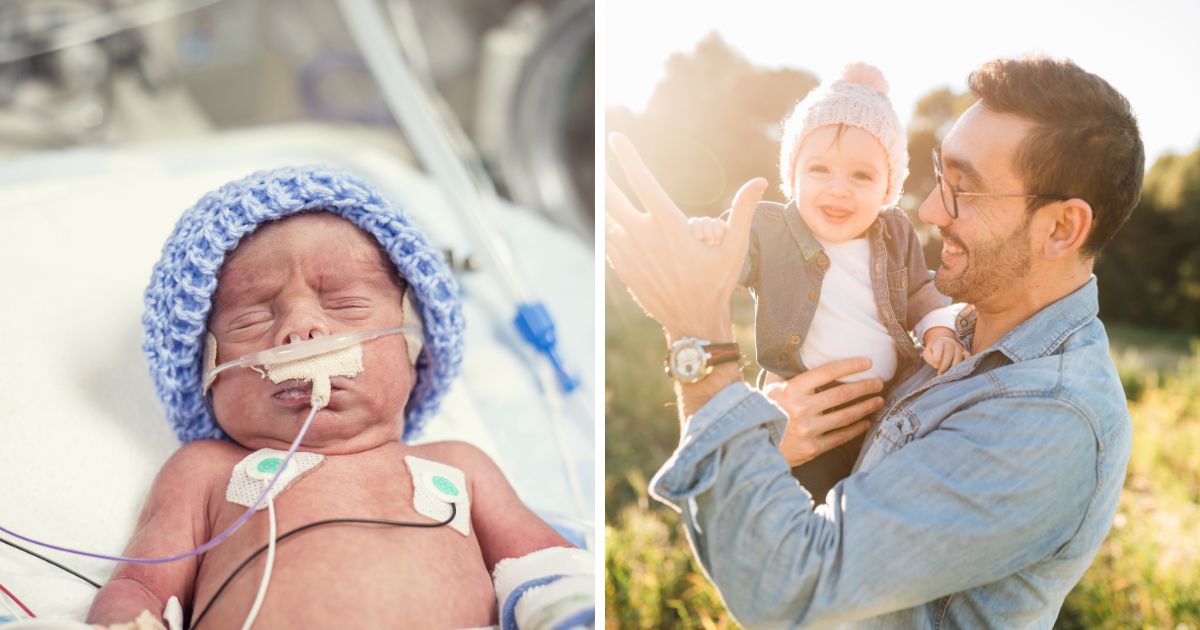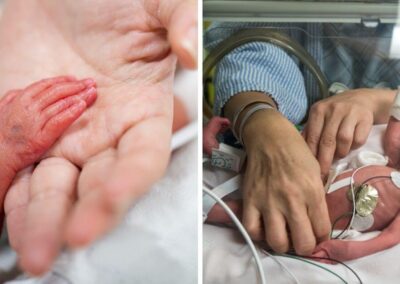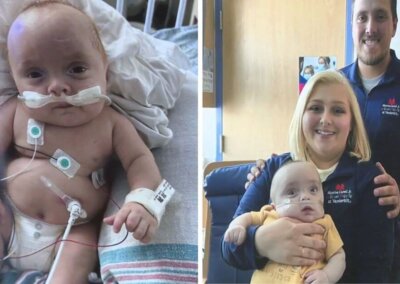The father of a now healthy baby girl who was born three months prematurely has made his first blood donation in gratitude after his daughter’s life was saved with blood transfusions.
Lottie, daughter of Chris and Louise Watson, was born three months premature after a lack of blood flow and loss of amniotic fluid led to an early delivery. She was born at 1lb 4oz and treated for 13 weeks at Wishaw General Hospital, during which time her weight dropped down to just 1lb 1oz.
Because she was born so prematurely, Lottie needed five blood transfusions to help her start growing again. Her father Chris said “We knew she needed a transfusion before the numbers came back from the labs. Her colour would completely drain”.
“She was like a whole new baby after her transfusion”.
Thanks to her treatment, Lottie began to grow rapidly. “Lottie now weighs 9lb 4oz and has recently started weaning on to solid foods” her father said. Her parents are now looking forward to spending their first Christmas with their baby girl and her older brother.
Five months after Lottie was born, Chris made his first blood donation
The father expressed his gratitude to the blood donors who had made it possible for Lottie to receive treatment. He said that he had pledged to start donating blood himself when he saw how much difference the blood donations made to his daughter.
He said “I wanted to give back because if it wasn’t for the kindness of strangers who gave up their time and blood, I wouldn’t have my little girl”.
Blood for newborns needs to be specially tested for the cytomegalovirus (CMV), which is a mild virus that stays in the body for the rest of a person’s life. Donated blood for newborn babies or anyone with a poor immune system should not contain the antibodies for CMV. As 50-60% of adults in the UK have had the virus, this factor puts a significant limitation on the blood that can be donated for premature babies like Lottie.
Medical advances continue to increase the odds of premature babies’ survival
While Lottie was born only three months prematurely, babies from as early as 22 weeks gestation are increasingly surviving. A study in 2022 found almost four out of five babies born prematurely between 22 and 28 weeks gestation survive to discharge from the hospital. It found that from 2013 to 2018, with infants born between 22 and 28 weeks gestation, “survival to discharge occurred in 78.3% and was significantly improved compared with a historical rate of 76.0% among infants born in 2008-2012”.
In the decade to 2019 alone, the survival rate for extremely premature babies doubled, prompting new guidance from the British Association of Perinatal Medicine (BAPM) that enables doctors to intervene to save premature babies from 22 weeks gestation. The previous clinical guidance, drafted in 2008, set the standard that babies who were born before 23 weeks gestation should not be resuscitated.
Research published in November 2023 by academics at the University of Leicester and Imperial College London found the number of babies born at 22 weeks gestation who survive to discharge from hospital tripled between 2018-19, before the BAPM guidance was introduced, and 2020-21, after the BAPM guidance was introduced.
Spokesperson for Right To Life UK, Catherine Robinson, said “Baby Lottie’s father, Chris, is rightfully delighted that his daughter is alive and well to spend Christmas with her family. This story shows how powerful the gift of life is, as Chris has gone on to donate blood himself to help other people”.












